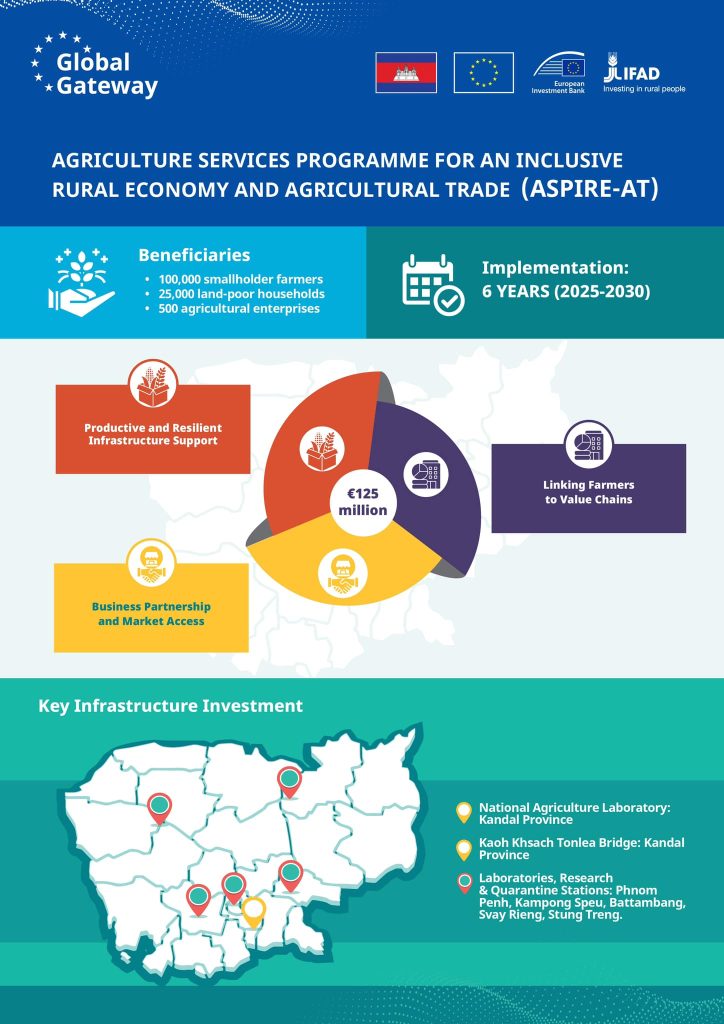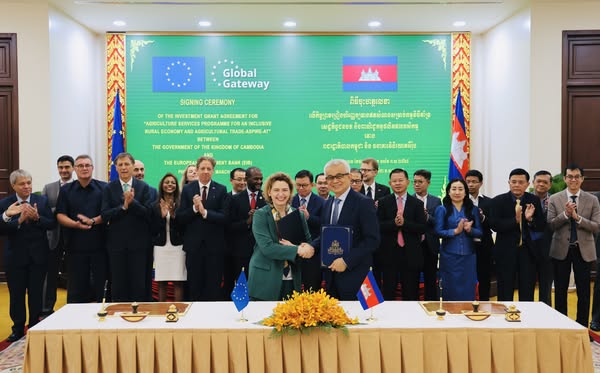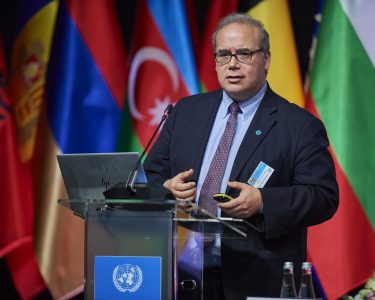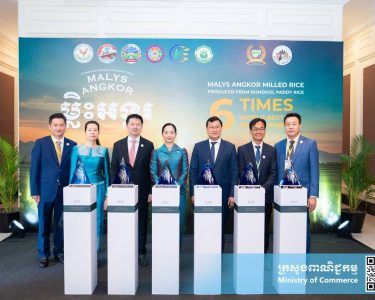Cambodia Investment Review
The European Union has announced a comprehensive €80 million investment package to modernize Cambodia’s agricultural sector, improve food security, and expand market access for smallholder farmers and agribusinesses. The initiative, which combines financing from the European Investment Bank (EIB) Global, EU grants, and technical assistance, is expected to benefit 100,000 smallholder farmers, 25,000 land-poor households, and 500 agricultural enterprises.
The investment will support Cambodia’s agricultural value chains by upgrading key infrastructure, improving food safety standards, and enhancing export competitiveness. Additionally, the package will fund the construction of the Kaoh Khsach Tonlea bridge, improving transport links and market access for rural communities.
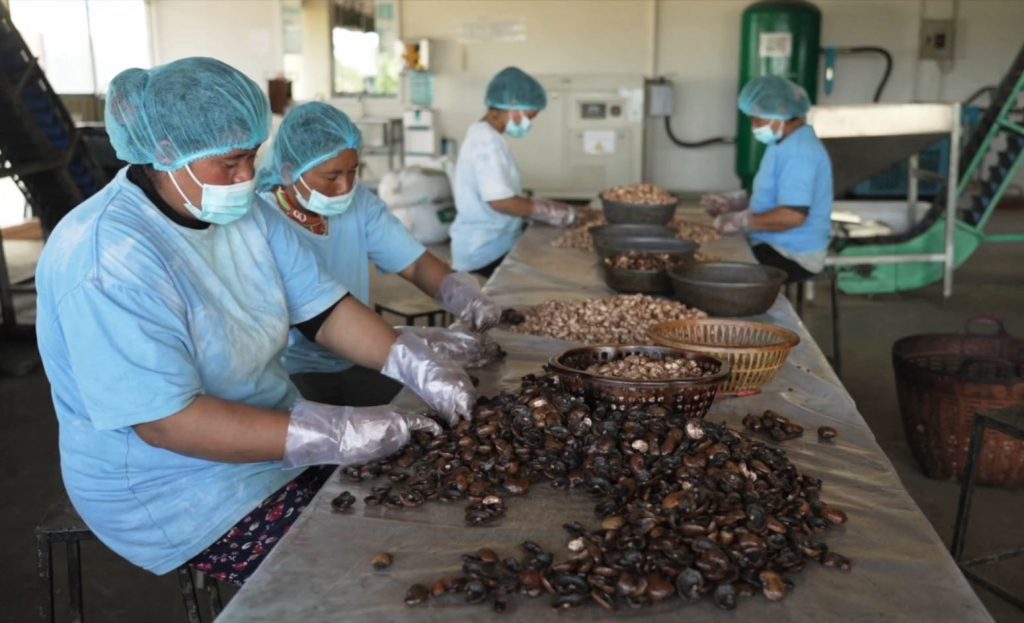
Strengthening agricultural infrastructure
A key component of the investment is the modernization of Cambodia’s National Agricultural Laboratory, which will expand the country’s sanitary and phytosanitary capabilities. This initiative aligns with the European Union’s Global Gateway strategy, promoting sustainable growth, climate resilience, and inclusive economic development.
The financing package includes:
- A €60 million loan from EIB Global
- A €15 million EU grant for the Agriculture Services Programme for an Inclusive Rural Economy and Agricultural Trade (ASPIRE-AT)
- €4.5 million in additional technical assistance from the EU
- $49 million in co-financing from the International Fund for Agricultural Development (IFAD)
High-level signing ceremony
The agreement was signed in Phnom Penh by Deputy Prime Minister and Minister of Economy and Finance Aun Pornmoniroth and EIB Vice-President Nicola Beer, marking her first visit to Cambodia in this role. The signing was attended by EU Ambassador to Cambodia Igor Driesmans and Frew Behabtu, country director for Cambodia at IFAD.
Speaking at the event, EIB Vice-President Nicola Beer emphasized the significance of the financing: “The European Investment Bank is proud to support ASPIRE-AT and Cambodia’s agricultural sector, which plays a vital role in the country’s economy and food security. With this financing, we are helping the government strengthen food security, increase farmers’ incomes, and open up new market opportunities for Cambodian products. It is a great example of how Team Europe delivers real impact, creating jobs, driving trade, and strengthening Cambodia’s economy.”
EU Ambassador Igor Driesmans highlighted the EU’s commitment to Cambodia’s agricultural transformation: “Our support of €19.5 million in grants will help farmers and their communities improve primary production, processing capabilities, and market access. Through capacity building and financing, we are making the sector more inclusive and resilient, benefiting all Cambodians, especially those in rural communities.”
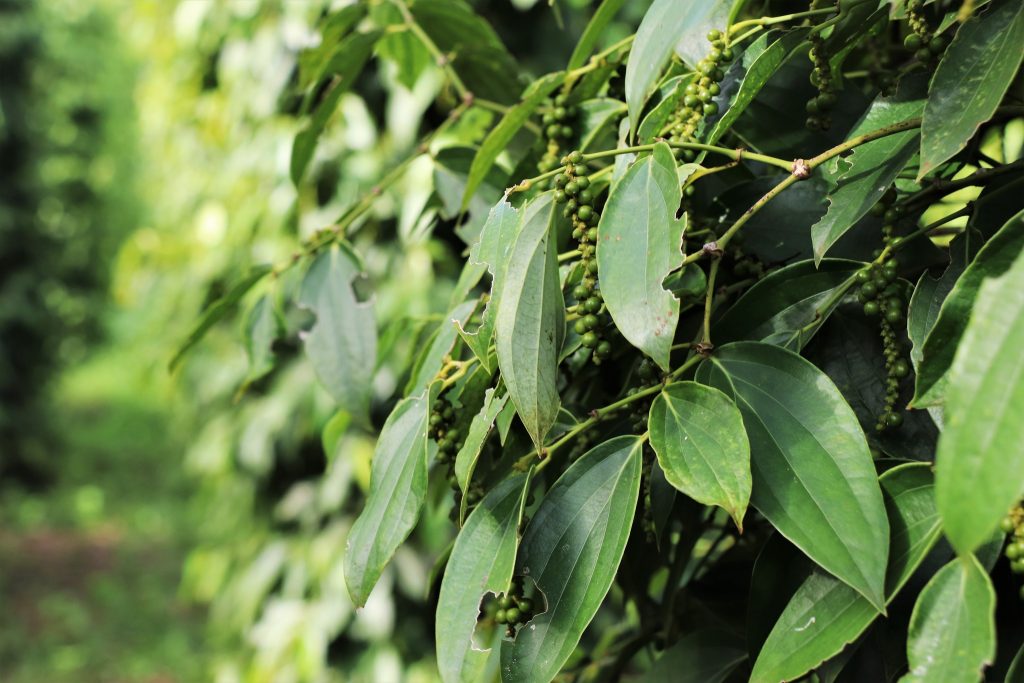
Supporting Cambodia’s economic vision
Deputy Prime Minister Aun Pornmoniroth welcomed the investment, noting its alignment with the government’s Pentagonal Strategy (Phase I), which aims to position Cambodia as an upper-middle-income country by 2030 and a high-income country by 2050. He reaffirmed Cambodia’s commitment to fostering stronger partnerships with the EIB, the EU, and IFAD.
In addition to enhancing food security and agricultural productivity, the funding will support the development of warehouses, drying pads, collection and handling facilities, and access roads to improve bulk produce transport. The construction of the Kaoh Khsach Tonlea bridge will further strengthen rural connectivity, enabling farmers to integrate more effectively into regional and global markets.
IFAD Country Director Frew Behabtu underscored the long-term impact of the investment: “This significant EU grant, alongside the EIB loan and IFAD’s co-financing, marks a powerful step towards transforming Cambodia’s agricultural sector. IFAD is proud to be part of this collaborative effort to empower rural communities, enhance food security, and unlock export potential for sustainable economic growth.”
By investing in Cambodia’s agricultural infrastructure and market connectivity, the EU aims to drive sustainable development while empowering rural communities with new income opportunities—particularly for women, youth, and indigenous groups.
